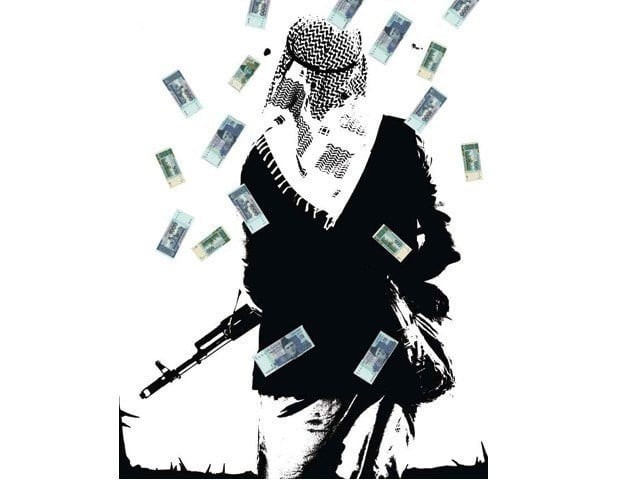Blocking terrorist funding
Money laundering is a primary source of finance through which terrorist groups are able to fund their activities.

The government has reportedly improved the current legislation on counterterrorism financing, which will soon be presented before parliament for approval. The anti-terror legislation must be brought forward as soon as possible. It is an open secret how some terrorist organisations use to have links to elements within the establishment. Since the government was unable to stop these elements from pursuing a deeply flawed policy, the least it can do is put a firm stop to terrorist-funding by bringing in a strong anti-terror legislation. Money laundering is one of the primary sources of finance through which terrorist groups are able to fund their activities. If this source of financing can be cut off, we would be able to somewhat control our terror problems.
Pakistanis live in constant fear of terror attacks on both military and civilian targets. Ridding our soil of terrorists is a win-win for both Pakistan and the international community. It is about time we took this important step and brought forward the anti-terror legislation.
Published in The Express Tribune, November 3rd, 2012.














COMMENTS
Comments are moderated and generally will be posted if they are on-topic and not abusive.
For more information, please see our Comments FAQ